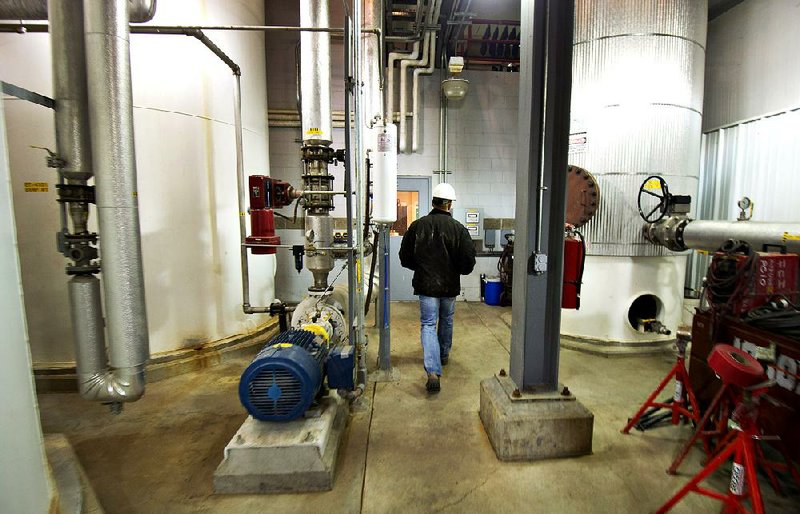Even as the U.S. produces more oil than at any time since 1992, gasoline remains a dollar higher than the average for the past decade in part because of President George W. Bush-era rules that attach a 38-digit Renewable Identification Number to every gallon of ethanol.
Gasoline prices at service stations have risen an average 12 percent this year even as benchmark West Texas Intermediate crude climbed 1 percent. Part of the reason is the tenfold increase in the cost of credits that refiners from Valero Energy Corp. to Marathon Petroleum Corp. must buy to comply with the 2007 law designed to increase ethanol consumption.
Bush’s mandate predates a boom in oil and gas production that has helped the U.S. meet 84 percent of its energy needs in the first 11 months of last year, government data show, the most since 1991. Since its passage in 2007, annual gasoline demand has dropped 6.3 percent, while U.S. output has soared 28 percent, making compliance by refiners more expensive and eclipsing any benefit from replacing hydrocarbon-based fuel.
“It’s bastardized our markets off into some cosmic market that has nothing to do with supply and demand,” said Peyton Feltus, president of Randolph Risk Management Inc., an energy-consulting firm in Dallas. “2007 was a very different energy world. There was so much demand for finished products.”
Crude production jumped to 7.16 million barrels a day as of March 8, the highest level since July 1992, driven by increased drilling in oil fields including North Dakota’s Bakken shale and the Eagle Ford in Texas, according to the Energy Information Administration.
Gasoline at the pump, averaged nationwide, has risento $3.686 a gallon Friday, or 15 percent higher than its December low, according to Heathrow, Florida-based AAA, the largest U.S. motoring group. It has averaged $2.697 since 2003. In Arkansas, the average price Friday was $3.498, down from $3.719, a year ago.
West Texas Intermediate crude fell as much as 1 percent to $92.45 a barrel Thursday on the New York Mercantile Exchange. Brent crude, the global waterborne oil that more closely reflects prices paid by U.S. refineries, has dropped 2.9 percent this year.
The credits that refiners must collect to show compliance with the federal mandate are attached to each gallon of ethanol as it’s distilled or imported into the U.S. Ethanol is a form of alcohol indistinguishable from moonshine that’s created by fermenting and distilling the starches from corn, sugar, wheat and other crops. Most of the fuel in the U.S. is corn-based.
When the biofuel is combined with gasoline, the credits go to the blenders, which can use them if they also produce gasoline or sell them to other obligated parties if they don’t need them or have an excess.
Each credit has the Renewable Identification Number, or RIN, which the Environmental Protection Agency tracks. The identification numbers, which are traded among brokers, jumped to a record $1.06 a gallon on March 8 from 7.1 cents on Jan. 7, according to data compiled by Bloomberg. They cost 70.5 cents Wednesday.
Complying with the mandate has become more difficult as the government raised the total amount of ethanol that must be blended with gasoline by 53 percent from 2008, while motor-fuel demand has dropped 15 percent from a 2007 record, according to refiners including Valeroand Marathon. The gap means higher pump prices, refiners say.
“A dollar a RIN is 10 cents a gallon,” Bill Klesse, chief executive officer of Valero, the world’s largest independent refiner, said Monday at the American Fuel & Petrochemical Manufacturers Conference in San Antonio. “It’s going to get passed on” to buyers at the pump.
Valero estimates its cost to comply with the Renewable Fuels Standard will be $500 million to $750 million this year.
Gasoline demand is projected to average 133.5 billion gallons in 2013 and 2014, the Energy Information Administration, the statistical arm of the Energy Department, said in its March 12 Short-Term Energy Outlook. Under the 2007 energy law signed by Bush, the U.S. is required to use 13.8 billion gallons of ethanol this year and 14.4 billion in 2014. Ethanol is typically combined with gasoline in a 10 percent ratio, called the blend wall.
Some auto manufacturers won’t honor a warranty if drivers use fuel with more than 10 percent ethanol, because of its corrosive properties, effectively capping how much refiners can blend at about 13.4 billion gallons for 2013, Charles Drevna, president of the industry group, said Sunday at the conference. That’s 400 million gallons less than the government mandate, raising demand for credits to make up the difference.
Green Plains Renewable Energy Inc. Chief Executive Officer Todd Becker described the surge in the price of credits as a classic short squeeze, a situation in which a lack of supply forces up prices, and said refiners have more room to consume ethanol without exceeding the blend wall. Becker said higher ethanol credit costs aren’t having a measurable effect on gasoline and pointed toward record returns from refining the motor fuel from crude oil.
“There’s no way that RINs would add 10 cents to every gallon of gasoline,” said Geoff Cooper, vice president of research and analysis at the Renewable Fuels Association, a Washington-based trade group. Cooper said an additional 10 cents assumes that a credit costs $1 and that all gasoline a refiner is selling contains no ethanol.
Information for this article was contributed by Joe Carroll, Christine Harvey, Eliot Caroom, Dan Murtaugh and Brad Olson of Bloomberg News.
Business, Pages 61 on 03/24/2013
